Mark Anthony Neal's Blog, page 741
April 18, 2015
Screening: FERGUSON--A Report from Occupied Territory | April 22nd at Center for Documentary Studies, Duke
 Ferguson: A Report from Occupied Territory Screening + Q&A with Filmmakers
Orlando de Guzman
and
Katina Parker
Moderated by Mark Anthony Neal
Ferguson: A Report from Occupied Territory Screening + Q&A with Filmmakers
Orlando de Guzman
and
Katina Parker
Moderated by Mark Anthony Neal **FREE EVENT w/ REFRESHMENTS**
6:30pm, Wednesday, April 22
Center for Documentary Studies
1317 W Pettigrew St, Durham, NC 27705
(919) 660-3663
Join us for a screening of Ferguson: A Report from Occupied Territory, to be followed by a Q& A with the filmmakers Orlando de Guzman (Director/Producer) and Katina Parker (Co-Producer). Moderated by Mark Anthony Neal, professor of Black Popular Culture in the Department of African and African-American Studies at Duke University.
Featuring commentary from Brendan Roediger, Ashley Yates, Rev. Osagyefo Sekou, Thomas Harvey, and Derek Laney, this insightful documentary traces the connection between St. Louis County’s ruthless form of racially targeted policing-for-profit, and its roots in racist housing policies and practices, segregation and slavery. The film contextualizes Mike Brown’s murder by highlighting the systemically racist municipal courts and the dystopian police state the system requires to thrive financially and continue to exist. The film also looks at how anti-Black racism inFerguson and the surrounding municipalities has become fertile ground for a new wave of activism that has spread nationwide.
This event is free. Seating is limited Please arrive early. There will be refreshments prior to the screening.
Published on April 18, 2015 10:08
April 16, 2015
Nathaniel Mackey’s Long Song
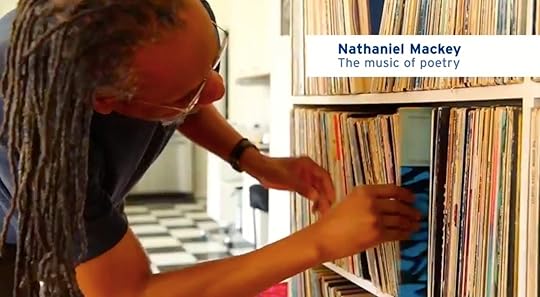 Nathaniel Mackey: “Poetry is the slow-cooking movement of literature.” As Mackey spins a few discs from his vast collection of Jazz and world, the Duke University professor describes how music weaves through his award-winning poems.
Nathaniel Mackey: “Poetry is the slow-cooking movement of literature.” As Mackey spins a few discs from his vast collection of Jazz and world, the Duke University professor describes how music weaves through his award-winning poems.
Published on April 16, 2015 19:21
#LovingBlack: Blitz the Ambassador's "JuJu Girl" (video)
Published on April 16, 2015 19:09
April 15, 2015
White Officers Who Kill Black Men Should be Tried by All-Black Grand and Trial Juries
 White Officers Who Kill Black Men Should be Tried by All-Black Grand and Trial Juriesby Victor Erik Ray | @victorerikray | special to NewBlackman (in Exile)
White Officers Who Kill Black Men Should be Tried by All-Black Grand and Trial Juriesby Victor Erik Ray | @victorerikray | special to NewBlackman (in Exile)The last week has given us two new graphic videos of white police officers murdering unarmed black men. In the wake of these killings—and those of Mike Brown, Akai Gurley, Walter Scott and many others—pundits, policy makers and even police departments have offered a number of suggestions on how to lessen police brutality. Pundits have opined that diversity training can provide officers with the necessary competence to police minority communities. Stop and frisk policing, based on the dubious notion of broken-windows policing, has been derided as racist and ineffective. Police chiefs and even president Obama have suggested that body cameras can help.
These policies may improve things, but in the case of Eric Garner, video evidence wasn’t enough to even convince the grand jury to bring charges. And many police departments already have diversity training. These efforts have been incapable of staunching the steady stream of black death inflicted by agents of the state. We should consider a different solution.
White officers who kill black men should be tried by all-black grand and trial juries.
I realize that to the average white reader this suggestion may sound preposterous. But the very fact that such a suggestion seems outlandish shows how ingrained white supremacy is in the criminal justice system. Whites have the privilege of believing themselves objective, color-blind, and able to apply the law in an unbiased manner. Yet nearly every aspect of the “criminal justice” system is in the hands of the white power structure. All-white and even mixed-race juries function as a linchpin of white supremacy in the U.S. In the Jim Crow south, all-white juries routinely exonerated the racial terrorism that was required to make American apartheid function.
The practice of stacking the jury against black life hasn’t ended. Despite the alleged illegality of this practice, blacks can still be excluded from jury service for ostensibly race-neutral reasons. This “race neutrality” is usually a thin veneer, as prosecutors have been trained to exclude blacks with methods that appear color-blind. Thus, in many parts of the country, blacks are routinely excluded from juries.
Excluding blacks from juries has real consequences. Research shows that it is difficult for whites to empathize with blacks subject to violence—or to even see us as fully human. The consequences of these life-or-death decisions, made in predominantly white contexts, have been terrible for blacks. All-white juries convict black defendants at higher rates, and killing a white victim is more likely to get you the death penalty.
As is exhaustively documented by Michelle Alexander, every aspect of the criminal justice system is biased against people of color. Blacks and Latinos are surveilled, stopped, searched, charged and sentenced at higher rates than whites. Differential crime rates of cannot fully account for these differences, and people of color face harsher penalties for committing the same offense. People of color have long decried the racial inequalities that characterize the criminal justice system. Indeed, in their founding documents, the Black Panthers called for retrying every black prisoner, as white juries have been incapable of basic fairness. Although some scoff at the #BlackLivesMatter movement, it is clear that to white juries, some lives are more equal than others.
Even evidence of the rampant bias in the criminal justice system hasn’t been enough for whites to question or challenge this system. Recently, researchers at Stanford University—including Macarthur Genius award winner Jennifer Eberhardt—have shown that presenting whites with compelling evidence that the criminal justice system is racially unfair actually increases whites’ commitment to those polices. The philosopher Charles Mills calls this deeply ingrained refusal to acknowledge the reality of state- sanctioned white racial violence “white moral cognitive dysfunction.” Mills claims whites routinely deny and misrecognize the racial order, refuse to grant people of color equal status, and are invested in seeing the system as legitimate. Affirming the basic equality of the criminal justice system despite all evidence is a clear cognitive fallacy, one to which white juries have consistently succumb.
Open spectacles of violence have never been enough to guarantee even a modicum of justice for black Americans. In all of these cases, justice would consist of not being profiled, accosted and killed in the first place. And the idea that only whites can be objective arbiters of the law is part of the long racist history of the U.S. Our system was, after all, built by and for white men. Perhaps having all-black juries adjudicate these cases would help invert the interpretive lens by highlighting the basic unfairness of placing much of the criminal justice apparatus in the hands of whites.
+++
Victor Erik Ray is an Assistant Professor of Sociology at the University of Tennessee Knoxville. His research focuses on race, gender, and organizations.
Published on April 15, 2015 12:29
Hip-Hop Speaks Out on Excessive Police Force
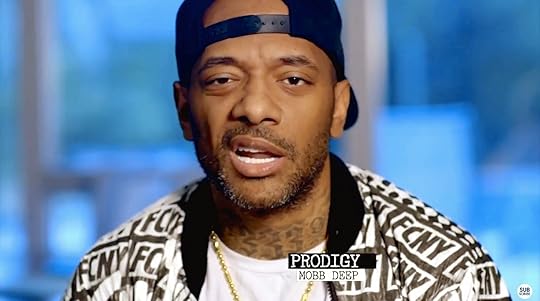 In the Fusion short film Black White & Blue, Hip-Hop artists Joey Bada$$, Fat Joe, M1 of Dead Prez, Prodigy, Pete Rock, and 3D Natee discuss relations with Law Enforcement.
In the Fusion short film Black White & Blue, Hip-Hop artists Joey Bada$$, Fat Joe, M1 of Dead Prez, Prodigy, Pete Rock, and 3D Natee discuss relations with Law Enforcement.
Published on April 15, 2015 12:01
April 14, 2015
From the Revolutionary Archive: Dick Gregory on Police Violence...in 1965
 Striking about this appearance by comedian Dick Gregory on The Merv Griffin Show, weeks after the Watts Rebellion, is that his language is apropos to the #BlackLivesMatter moment--50 years later. Also notable that this is the year before the founding of the Black Panther Party for Self-Defense and that in Gregory's political transformation, lies the foundation for the career of Richard Pryor.
Striking about this appearance by comedian Dick Gregory on The Merv Griffin Show, weeks after the Watts Rebellion, is that his language is apropos to the #BlackLivesMatter moment--50 years later. Also notable that this is the year before the founding of the Black Panther Party for Self-Defense and that in Gregory's political transformation, lies the foundation for the career of Richard Pryor.
Published on April 14, 2015 10:15
April 13, 2015
Interview with Artist William Pope.L
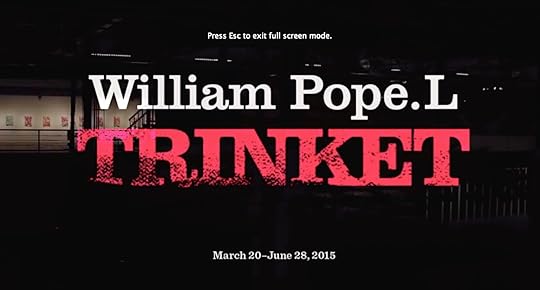 On the occasion of
Trinket
, the largest museum presentation of the Chicago-based
William Pope.L's
work to date, the artist talks with MOCA.
On the occasion of
Trinket
, the largest museum presentation of the Chicago-based
William Pope.L's
work to date, the artist talks with MOCA.
Published on April 13, 2015 20:01
Penn Students Protest Abrupt Closure of the UPenn Africa Center in front of Prospective Undergrads
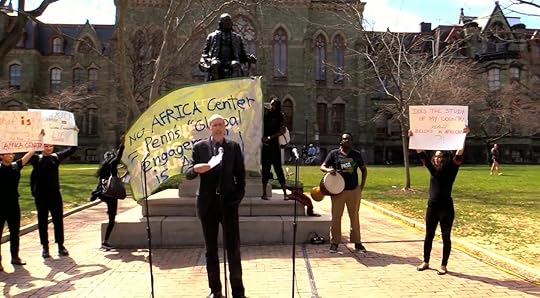 At the University of Pennsylvania’s annual College of Arts and Sciences showcase, dozens of Penn students organized a demonstration aimed at Associate Dean Jeffery Kallberg, who abruptly decided to shut down the
UPenn Africa Center
without the consultation of its staff, students and the wider Penn community.
At the University of Pennsylvania’s annual College of Arts and Sciences showcase, dozens of Penn students organized a demonstration aimed at Associate Dean Jeffery Kallberg, who abruptly decided to shut down the
UPenn Africa Center
without the consultation of its staff, students and the wider Penn community.
Published on April 13, 2015 18:11
Painting The 'Epic Drama' Of The Great Migration: The Work Of Jacob Lawrence
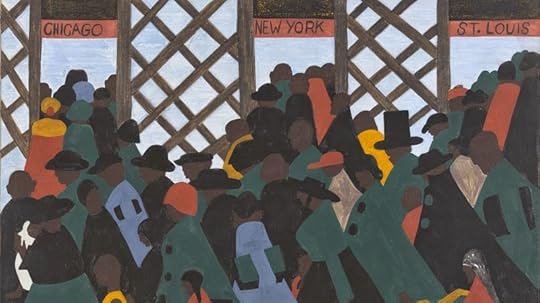 A rare exhibition at New York's Museum of Modern Art features 60 of
Jacob Lawrence's
paintings about the journey of 6 million African-Americans, who fled the segregated South during the
Great Migration
.
A rare exhibition at New York's Museum of Modern Art features 60 of
Jacob Lawrence's
paintings about the journey of 6 million African-Americans, who fled the segregated South during the
Great Migration
.
Published on April 13, 2015 17:48
April 12, 2015
Broadcasting Black Girls’ "Net Worth" -- Kyra Gaunt at TEDxUofM
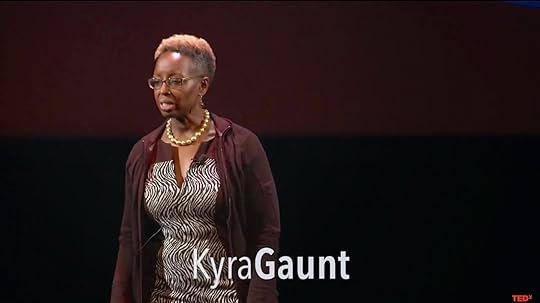 Dr. Kyra Gaunt examines how the social judgement imposed on the online expression of Black adolescent girls, specifically twerking videos on YouTube, negatively impacts them as artists and people. Ethnomusicologist and vocalist Gaunt received her Ph.D. from the School of Music at University of Michigan in 1997. She is an award-winning author, a TED Fellow, and a digital ethnographer who studies the intersectionality of race, gender and adolescence on YouTube.
Dr. Kyra Gaunt examines how the social judgement imposed on the online expression of Black adolescent girls, specifically twerking videos on YouTube, negatively impacts them as artists and people. Ethnomusicologist and vocalist Gaunt received her Ph.D. from the School of Music at University of Michigan in 1997. She is an award-winning author, a TED Fellow, and a digital ethnographer who studies the intersectionality of race, gender and adolescence on YouTube.
Published on April 12, 2015 20:38
Mark Anthony Neal's Blog
- Mark Anthony Neal's profile
- 30 followers
Mark Anthony Neal isn't a Goodreads Author
(yet),
but they
do have a blog,
so here are some recent posts imported from
their feed.




